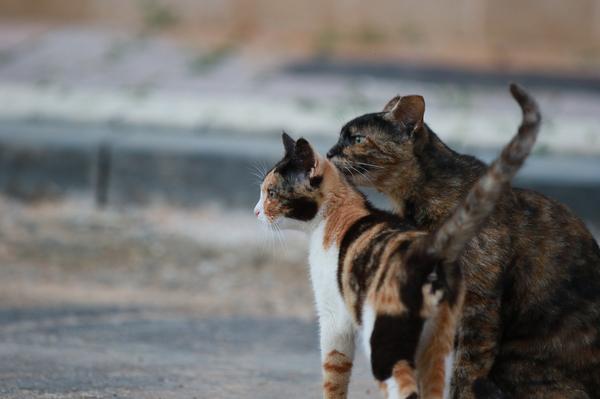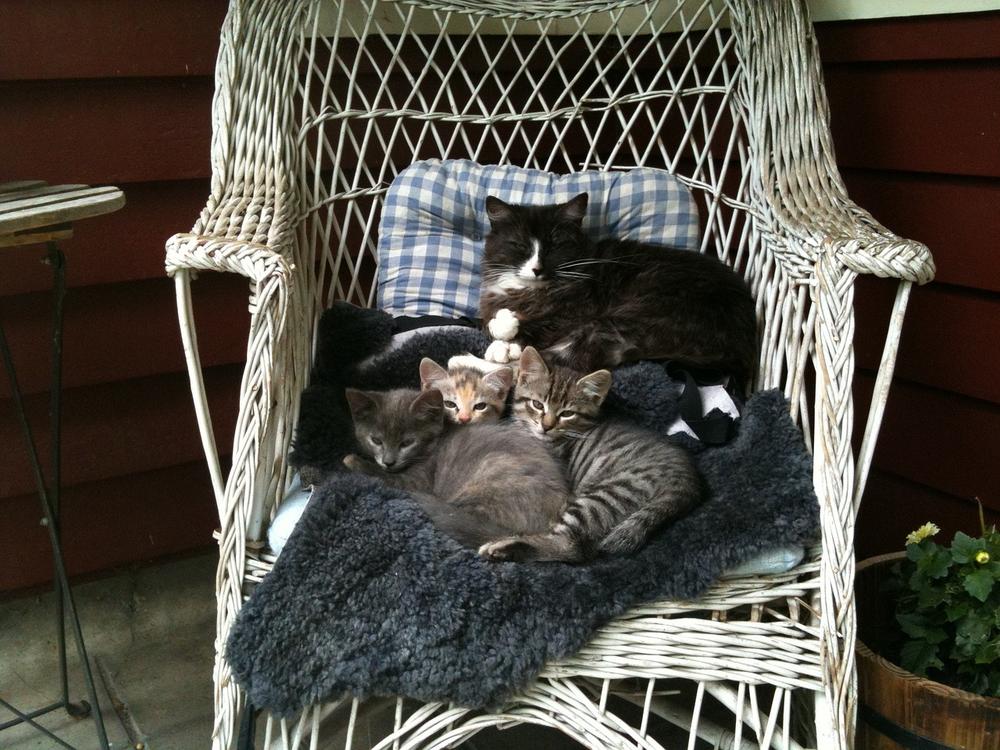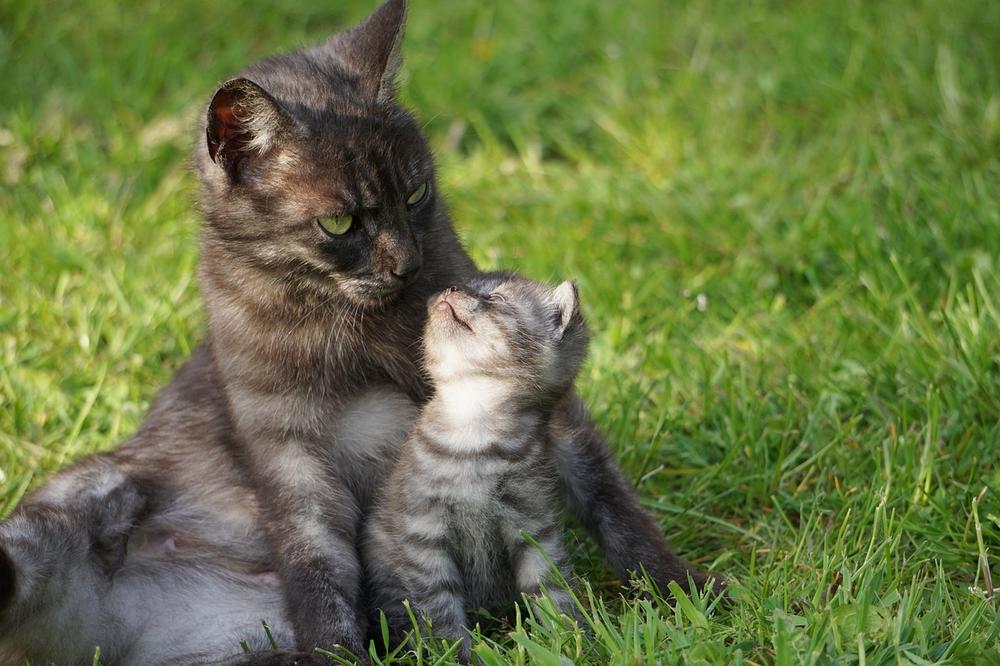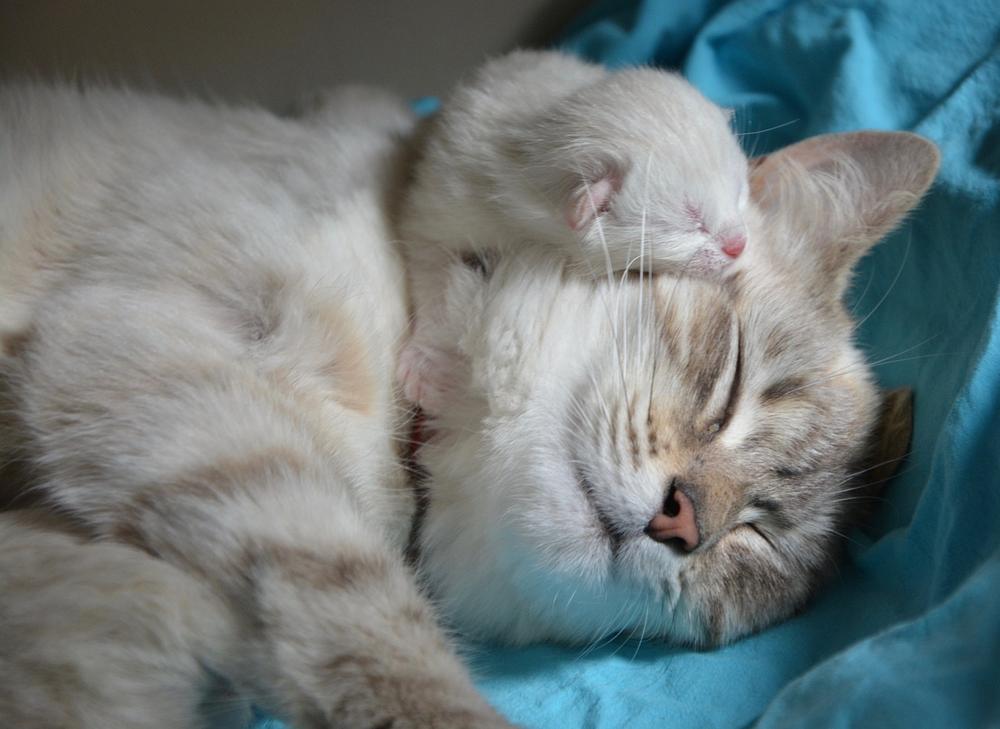What to Feed a Mother Cat After Giving Birth? (Helpful Guide)

Want to ensure your furry queen is well-fed after her big delivery?
I bet you're feeling all sorts of emotions right now. 😊
"What do I feed her? Will she have enough energy? Am I doing this right?"
Trust me, I've been in your shoes.
But don't worry, I've got your back.
Let's dive into what to feed your mother cat after giving birth.
Let's begin!
Best Foods for Nursing Mother Cats
When nursing, mother cats have specific nutritional needs.
So after giving birth, you should feed them high-calorie food to nourish both the kittens and themselves. Wet food is preferable because it has more protein🐟.
You can choose a cat food that provides increased nutrition like SquarePet Grain-Free Turkey & Chicken or Purina Pro Plan, which are high in protein.
If you want to add even more protein, you can give them cooked chicken, beef, fish, or eggs.
Excellent digestibility is crucial for pregnant cats since they have limited stomach space and high energy requirements. Gradually increasing fish in their diet can provide beneficial omega-3 fatty acids, but ensure not to deplete Vitamin E levels.

For some cats, holistic formula cat food may provide the necessary vitamins and minerals, but remember that not all cats might enjoy the flavor.
If your cat is vegetarian, they may need additional animal protein through meat supplementation.
High-fat diets and extra calories from protein and healthy fats are essential to support pregnancy and lactation.
Another option to consider is NutriCat Adult Formula.
And if you're wondering about adding water to your nursing cat's dry food, I have the perfect guide for you! In Are You Adding Water to Dry Cat Food, I provide all the information and advice you need to make the best decision for your furry friend.
Make sure to check it out!
Nutritional Requirements for Mother Cats After Giving Birth
Importance of Proper Nutrition After Birth
Congratulations!
You did it!
Your cat just had kittens, and now it's time to focus on their nutrition.
Let me tell you why this is so crucial.
It's all about keeping the momma cat healthy and ensuring those adorable kittens grow up strong.
Feeding for Milk Production and Bone Development
Here's the deal:
Calcium and vitamin D are essential for the mother cat to produce enough milk for her kittens and help them develop healthy bones. So, what can you do?
Make sure you offer a well-balanced diet with plenty of calcium-rich foods.
This will keep both momma and babies healthy and growing stronger every day.
Additional Caloric and Protein Needs
Now, here comes the interesting part. During lactation, mother cats have way higher energy requirements than usual.
That means you need to feed them a high-calorie diet to support their increased energy demand.
Oh, and don't forget about protein.
It's super important for the nursing mom's all in all health and the proper development of the kittens. So ensure they get plenty of that too.
Monitoring Health and Preventing Complications
Alright, let's talk vet visits.
They're not just for when your cat is sick or pregnant.
Regular check-ups throughout pregnancy and nursing are a must.

Why?
Because during these visits, your vet can monitor weight gain and food intake, making sure everything is going smoothly.
Plus, they can help you identify any diseases that can be transmitted from the mother cat to the kittens through the milk. So, stay vigilant, examine the momma cat closely for any signs or symptoms, and take action if needed.
Don't worry, I'm here to help you ensure the whole feline family stays healthy.
Postnatal Care and Milk Fever
Ah, postnatal care — often overlooked but just as important as prenatal care!
Here's what you need to bear in mind.
Schedule those vet visits, create a cozy and warm environment for the new family, and keep all necessary supplies close by. And here's something you don't want to mess with:
"Milk fever." Also known as hypocalcemia, it can be a veterinary emergency if the mother cat lacks sufficient calcium. Scary, right?
But fear not!
By providing a nutrient-filled diet and staying alert for any symptoms, you can ensure that milk fever doesn't stand a chance.
With proper nutrition and care, you'll give your mother cat and her adorable little kittens the best start in life.
Trust me, investing in their health will pay off big time.
So let's do this together, because I've got your back!
And finally, if you're wondering about how long a newborn kitten can go without eating or consuming milk, I've got the answer for you.
In my blog post, How Long Can a Newborn Kitten Go Without Eating, you'll discover all the essential information you need.
Take care of the mother cat's nutritional needs, and dive into my guide to ensure the wellbeing of those precious little ones.
How Often Should I Feed My Cat After Giving Birth?
Here are 10 essential guidelines to ensure your cat stays healthy after giving birth:
- Give her frequent, small meals throughout the day so she gets enough calories.
- Let her have unlimited access to food to get all the nutrients she needs while nursing.
- Once the kittens start eating adult cat food, introduce it slowly.
- Gradually increase the amount of adult food and decrease the proportion of kitten food.
- Introduce solid food to the kittens when they're around 3-4 weeks old.
- The weaning process should be gradual and complete by the time they're 6-10 weeks old.
- When the kittens are three weeks old, give them wet food and supplement with KMR (kitten milk replacement) while they still nurse.
- Take charge of feeding and taking care of the kittens as the mother cat recovers.
- Even if the mother cat's appetite decreases during pregnancy, always provide fresh water and food for her.
- Maintain a high-calorie diet for her with three meals a day to keep her energy levels up, but don't overfeed her to prevent obesity.
Your dedication to caring for both the mother cat and her kittens is crucial for their well-being.
And now, let's dive deeper into the importance of a balanced and nutrient-rich diet for mothers cats after giving birth!
Benefits of Feeding a High-Quality Diet to Mother Cats Post-Birth

When mother cats give birth, you ought to feed them a top-notch diet. Here's why:
- It helps them heal faster: A nutrient-packed diet boosts their recovery after giving birth, giving them back their strength and energy.
- It increases milk production: By providing balanced and high-energy food, it supports milk production so that the kittens get the nutrition they need for optimal growth.
- It aids in weaning: Feeding the mother cat a high-quality diet makes weaning easier when separating her from the kittens. This prevents malnutrition and potential health problems for the little ones.
- It reduces the risk of low birth weight: If the kittens experience malnutrition during weaning, they can end up with a low birth weight. A high-quality diet decreases this risk and ensures that the offspring are healthier and stronger.
- It respects maternal preferences: Just like humans, each mother cat has her own attention preferences. Some enjoy visitors, while others prefer solitude. Understanding and respecting these preferences reduces stress and creates a nurturing environment.
- It's vital for feral cats: Feral cats often struggle to find enough food and water, which makes a nutritious diet even more important. Opting for premium foods with more protein and less carbohydrates improves the mothers' health and increases the kittens' chances of survival.
So, providing mother cats with a high-quality diet after giving birth is not only beneficial for their recovery but also for the well-being of their babies.
Foods to Avoid Feeding a Mother Cat After Giving Birth
Onions, garlic, and chocolate are potential toxic foods for cats.
When a mother cat is lactating, you ought to be aware of the risks associated with these ingredients.
To ensure optimal nutrition during this crucial time, you should feed the mother cat high-quality canned kitten food supplemented with KMR.
For litter training, choose non-clumping clay litter or premium non-clay alternatives. If your cat has allergies or a sensitive stomach, it might be wise to avoid fish-based foods. Instead, consider exploring healthier options like sea algae or coconut oil. These can provide essential nutrients without triggering any adverse reactions.
Signs of Malnutrition in Newborn Kittens
Kittens are delicate little creatures and you gotta take malnutrition seriously.
Knowing the signs can help you figure out whether your fluffy babies are getting the right grub they need to thrive.
Here's what you should keep an eye out for:
- If your kitten doesn't seem interested or eager to chow down, it might mean they're not getting the nourishment they need. So, pay close attention to their eating habits because they should have a healthy appetite.
- Healthy kittens grow steadily over time. But if your little furball ain't gaining weight like they should, it could be a sign of nutritional deficiencies.
- When nursing, kittens should have a strong and consistent sucking reflex. But if they're struggling or having trouble latching on, it could mean they're not getting enough sustenance.
- A kitten's coat should be silky soft and shiny. But if you notice it's looking dull, dry, or there's hair loss, it could be a result of them not getting the right nutrition.
Make sure you keep a close watch on your kittens' well-being and seek some expert vet care if you spot any of these signs.
With proper TLC (tender loving care) and attention, you can ensure your kittens grow up all happy and healthy.
Nourishing Your Mother Cat for Optimal Health
Key takeaways:
- Feed mother cats high-calorie, wet food with increased protein content.
- Choose cat food that provides increased nutrition, such as Hill's Science Diet Kitten Food formulas.
- Add additional protein through cooked chicken, beef, fish, or eggs.
- High-protein foods, like SquarePet Grain-Free Turkey & Chicken and Purina Pro Plan, are recommended.
- Gradually increase fish in their diet for beneficial omega-3 fatty acids.
- Consider holistic formula cat food for vitamins and minerals, though some cats may not prefer the flavor.
- Vegetarian cats may need additional animal protein through meat supplementation.
- High-fat diets and extra calories support pregnancy and lactation.
- Nutritional requirements for mother cats are crucial for their health and the proper development of kittens.
- Feeding pregnant cats more during the third trimester prevents excessive weight loss while nursing.
- Nursing cats need higher calorie intake, depending on litter size.
- Proteins play a significant role in a nursing cat's health and kitten development.
- Give calcium-rich food to boost milk production and bone development in kittens.
- Regular veterinary check-ups during pregnancy and nursing are recommended.
- Postnatal care for mother cat and kittens, including vet visits and a comfortable space, is vital.
And that wraps up today's article.
You've reached the end of my blog post, so let me ask you something. Did you enjoy reading it? I worked really hard to make sure my blog posts are informative and thorough. It takes me quite a bit of time (in a good way), so I would genuinely appreciate it if you could click on any of the social sharing icons to share this blog post with others. Thank you!
Talk soon,
-Sarah Davis